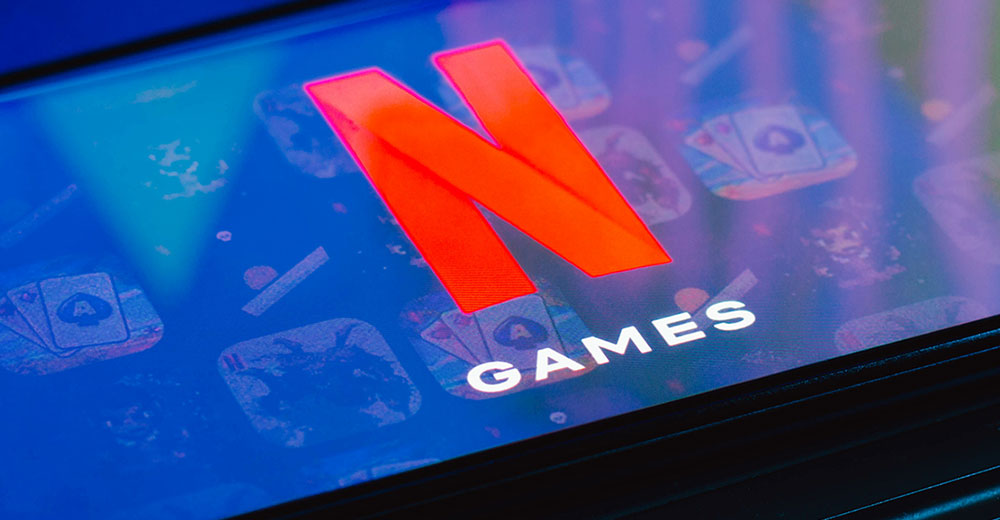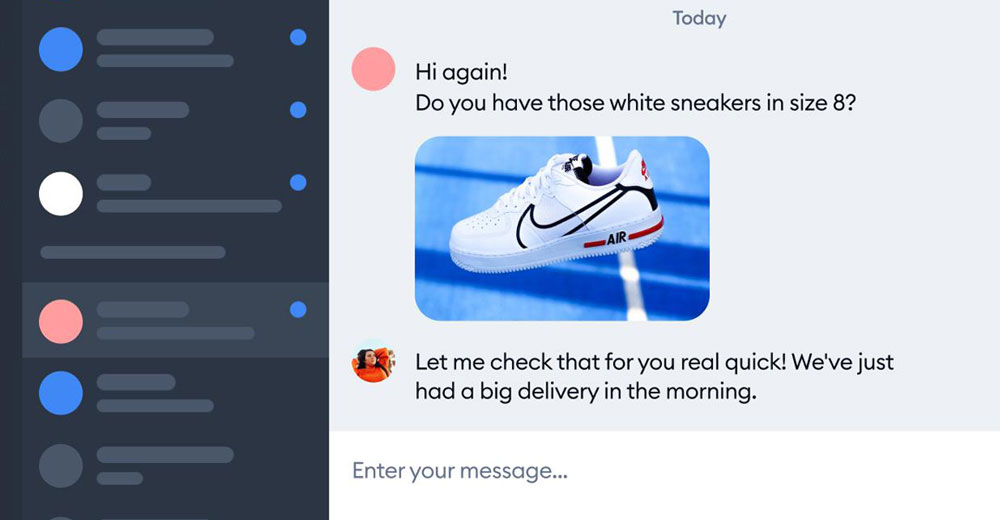Less than 1% of Netflix’s 221 million subscribers are playing the service’s games each day, according to a report from CNBC.
Based on statistics from Apptopia, the report revealed that there have been 23.3 million global downloads of Netflix’s mobile games and an average of 1.7 million subscribers are engaging with the games daily.
When Netflix announced its move into games in November, it was seen as a revenue diversification strategy made at a time when it was drowning in cash. Since then, the streaming service has seen a massive exodus of subscribers — 200,000 in the first quarter, nearly a million in the second quarter — so gaming could be even more important to the service now than when it initially launched.
However, it’s likely gaming will be on a back burner for a while. “I wouldn’t expect to see a lot of aggressive movement on the games front until they stabilize the subscription tier and are seeing some momentum from the ad-supported tier,” Ross Rubin, the principal analyst at Reticle Research, a consumer technology advisory firm in New York City, told TechNewsWorld.
“This report from Apptopia must be devastating to Netflix senior management,” observed Mark N. Vena, president and principal analyst at SmartTechResearch in San Jose, Calif.
“It confirms what many industry experts have long suspected: gamers do not see the Netflix brand as even remotely appealing for gaming versus traditional mobile, PC and console gaming platforms,” he told TechNewsWorld.
That lack of appeal will deny Netflix the ability to strengthen its subscription business and drive incremental revenue through gaming, he added.
No Need for Concern
Other analysts maintained the Apptopia findings wouldn’t be causing too much consternation in Netflix’s executive suites.
“Netflix should continue to be vigilant and observant of consumer response as it builds out its still-nascent games portfolio, but I don’t believe it should be overly concerned,” said Paul Erickson, research director at Parks Associates, a market research and consulting company specializing in consumer technology products, in Addison, Texas.
“The company is playing the long game when it comes to being a provider of connected entertainment, and it is learning its subscriber base’s habits as it progresses,” he told TechNewsWorld. “It is still early for its gaming aspirations, and I don’t believe that its current play with mobile apps is the end of its gaming strategy — only the initial stage.”
George Jijiashvili, principal analyst with Omdia, a research and consulting firm, in London, called Netflix’s approach to gaming “cautious and measured.”
“Netflix gaming was launched worldwide last November with just five games. Nine months later, it now offers 26 exclusive games, including ones made by its acquired studios,” he explained to TechNewsWorld.
“Netflix has also recently unveiled several upcoming games as tie-ins for their respective Netflix TV series. Based on its acquisitions and activity in this space, I think Netflix remains committed to gaming,” he said.
Dubious Value Proposition
Michael Inouye, a principal analyst at ABI Research, a global technology intelligence firm, agreed that Netflix should not be too concerned about the Apptopia findings. “If Netflix is concerned, then they had unrealistic expectations,” he told TechNewsWorld.
“Breaking into the gaming market as a previous outsider is never an easy task, especially when you are targeting mobile games,” he said.
“While Netflix’s mobile games, which still number less than 30 titles, may be included in the subscription — without ads or in-game purchases — these games are essentially competing against free,” he explained.
“Most mobile games are still free to play and most consumers have accepted both ads and in-game purchases, so long as it isn’t ‘pay to win’ — meaning you have to pay in order to advance or win,” he added.
Vena pointed out that Netflix is competing in a space with robust competitors who are offering a strong value proposition. “Netflix’s value proposition is very difficult to promote and defend in the gaming space,” he said. “Unless it provides some brand tie to their streaming content properties — which may be a non-starter — it’s hard to fathom how Netflix can differentiate itself in any meaningful way.”
More Marketing Needed
“Netflix is a company known for streaming video entertainment, not gaming,” Erickson observed. “Neither the brand nor the service resonate with the public as a known quantity when it comes to gaming. Without an active marketing campaign and branding push, the change in consumers’ brand perception will remain slow and gradual.”
“Right now, in the early stages of their gaming strategy, game content is positioned as a value addition to its video content,” he continued. “Whether mobile gaming remains a value-add to increase subscriber stickiness and increase the perceived value of a Netflix subscription long-term, or the company makes a broader content and brand push around gaming, remains to be seen.”
Inouye noted that even though there is a link to Netflix’s games at the bottom of its app, it hasn’t done a significant amount of marketing. “That is understandable given the current size of its gaming library,” he said, “but as this fills out, or when new titles based on hit shows launches, I would expect more direct marketing efforts on their part.”
Rubin agreed that Netflix could do a lot more to promote their games and suggested that might change when the company launches one of its proposed new tiers of service. “With the launch of the ad-supported tier of Netflix, it could provide them with some inventory to promote their games,” he said.
Jijiashvili cited three reasons for the subdued response by gamers to Neflix’s offerings: small selection, low subscriber awareness and mobile device exclusivity.
“Smart TVs, monitors, set-top boxes and digital media players are the preferred devices for watching Netflix at home,” he explained. “I believe many Netflix subscribers rarely go on its mobile app for this reason.”
“If Netflix were to deliver its games to more devices — for example, via cloud gaming — I think it could significantly boost subscriber engagement with its games,” he said.
‘Destined To Fail’
Inouye agreed that content is a problem with Netflix games at the moment. “Netflix doesn’t yet have enough unique content,” he said. “Even though some of the titles may be exclusive, many have the same game archetypes as other popular mobile games.”
“Netflix needs more unique IP that leverages its most popular video franchises,” he continued. “The Stranger Things games are a prime example here, Netflix needs more of these types of games, rather than repackaged mobile games with little ties to their library of exclusive content.”
“That is likely the goal, but it takes time to develop these games and build up the library,” he added. “The challenge will be finding a way to get the timing right between the lifecycle of the video franchise and development time and investment on the gaming front.”
Still, there are those who contend that Netflix made a big mistake getting into gaming in the first place. “Nobody needs Netflix to provide games, just like nobody needs to sign up for a video on demand when they are at a sporting event,” observed Michael Pachter, managing director for equity research at Wedbush Securities in Los Angeles.
“There is no natural connection between Netflix’s business and games, and their foray into gaming is destined to fail,” he told TechNewsWorld. “This is like McDonald’s selling groceries, because they serve half of the population and the population eats there. It isn’t logical that they would add groceries to their offering. Netflix adding games is similarly misguided.”























































